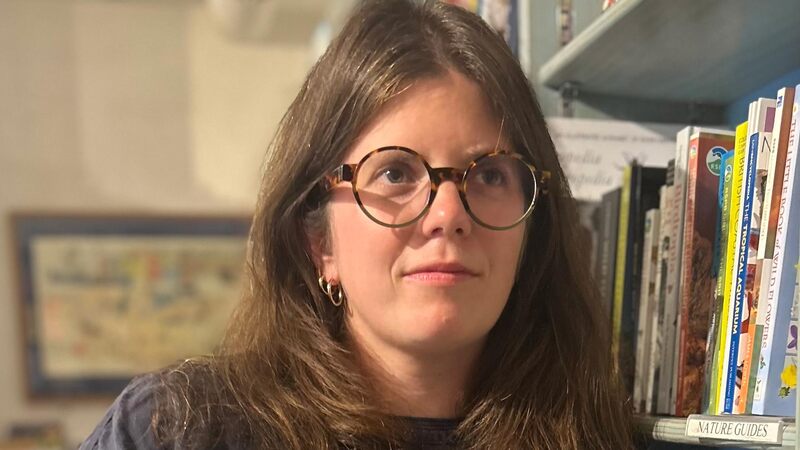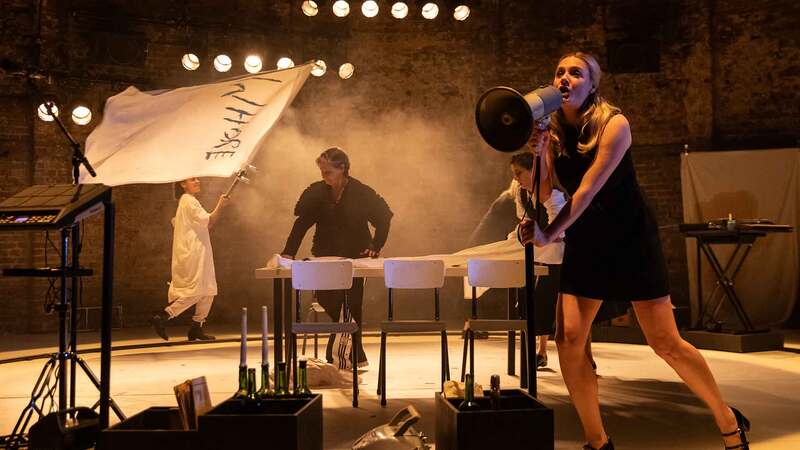You are viewing your 1 free article this month. Login to read more articles.
Controversy at Paris Book Fair as Macron boycotts Russia stand
The four-day Livre Paris book fair, which closed last night (Monday 19th March), had a controversial start this year. In a surprise announcement just hours before President Emmanuel Macron was due to inaugurate the fair on Thursday evening, his office said he would boycott the Russian guest-of-honour stand in support of the UK and Prime Minister Theresa May’s clash with President Vladimir Putin over the attempted poisoning of former spy Sergei Skripal and his daughter Yulia in Salisbury.
The move became a major topic of conversation among professionals, some of whom thought Russian publishers and authors should not have to pay for their government’s actions and that Macron would have done better to visit the stand and speak in defence of the UK.
Natalia Turine, who bought the Russian specialist bookshop Librairie du Globe in Paris in 2016 and managed the official Russian stand, was furious. In an open letter to Macron, published online by Actuallité, she called the move "a cold shower". Guests of honour pay for the honour, she said, and she paid €100,000 to run the Russian stand. "You penalized me in two ways, as a French entrepreneur and an intellectual," Turine said. "Culture is a strong point of your programme, but your absence from the stand (…) delivered quite another message," she added.
Despite bypassing the Russian stand, Macron, his wife Brigitte and culture minister Françoise Nyssen still spent three hours at the inauguration. An estimated 200 bodyguards, according to Livres Hebdo, formed a human barrier to keep guests away from the official delegation, and created bottlenecks wherever it went. This was in sharp contrast to Macron’s predecessor François Hollande, who mingled with the crowd.
Another absentee on the stand was Russian émigré author Vitaly Malkin, whose forthcoming book Dangerous Illusions, was presented on a stand 30 metres away. Malkin considers himself an alien rather than a dissident, because he has "given up on Russian politics". The book, which will be published in France (by Editions Hermann), the UK (Arcadia), Germany, Israel and Spain this year, is deliberately "biased" against religion, and "I am proud of it", he said. France-based Malkin wrote the book in Russian, but will not publish it in his home country.
A bright note came when the organisers—the French Publishers Association (Syndicat National de l’Edition, SNE) and Reed Expositions France—totted up visitor numbers and reported on book sales. Visitors totalled 165,000, up 7% from last year, and book sales were brisk. "Several publishers said their sales were 10% to 20% higher than last year," SNE director Pierre Dutilleul told The Bookseller. "The Russian stand had bet on an average purchase of 20 euros, but it was least double that." Some visitors said they bought Russian books out of solidarity following Macron’s snub on Thursday evening, he added.
Also positive was the announcement on the first day of the fair that an agreement had been reached on non-binding guidelines for the payment statements publishers send to authors. This follows an agreement last summer on returns and compensation between titles, but still leaves audits by authors and the life of books (reprints, derivative rights, pulping, new editions) to be hammered out.
But this came after a pre-fair row over whether authors would be paid for participating in debates, presentations, readings or workshops at the event. "We had understood from the organisers that we would be paid for all appearances apart from book signings this year," Marie Sellier, president of the French authors society (Société des Gens de Lettres, SGDL), told The Bookseller. "When we discovered this was not the case, I nearly fell off my chair," she added. "Authors' revenues continue to decline, and more than 40% of them said in a recent survey that their financial position had worsened in the past two years."
But the organizers say the row was about whether authors would be paid for presenting or "promoting" their own books, SNE director Pierre Dutilleul told The Bookseller: "This concerned a small minority of the 270 authors participating in events. By far the largest majority gave talks or workshops, or took part in debates." In the end, the organisers agreed to pay authors for all appearances except signings, whether they were discussing their own books-most published in the past year-or not.
This comes against a background of unhappiness from writers. The Permanent Council of Writers (Conseil Permanent des Ecrivains, CPE), the umbrella organization for authors and illustrators societies, plans to hold a convention on May 22nd under the banner "Angry Authors". Topics on the agenda will include falling incomes, tax and social security contributions. Reforms planned by the government will place book authors "in an extremely fragile situation", the CPE said.
Booksellers agreed that this year’s Livre Paris was an improvement on last year’s. Delphine de Loisy, who is in charge of literary and crime titles at the Grangier bookshop and stationer in Dijon, said it was "one of the best of the 21 I have attended. It was very dynamic and much more festive than usual."
Matthieu de Montchalin, owner of L’Armitière in Rouen and former president of the French Booksellers Association (Syndicat de la Librairie Française, SLF), welcomed small publishers’ presentations of titles for the next "rentrée" after the summer break and other initiatives, but said further efforts were needed to entice more booksellers to the fair from around the country. He also said he had never heard so many complaints from exhibitors about long queues for some stands blocking out their neighbours.
Meanwhile, in the wings of the inauguration, Editions Gallimard chairman and c.e.o. Antoine Gallimard confirmed to The Bookseller that the house would reprint the controversial Céline pamphlets at some point, despite Macron’s opposition to the idea. In January, Gallimard suspended a plan to reprint Bagatelles pour un Massacre (1937), L’Ecole des Cadavres (1938) and Les Beaux Draps (1941), written by the anti-Semitic Céline. No release date has been set for the moment, Gallimard added.
















